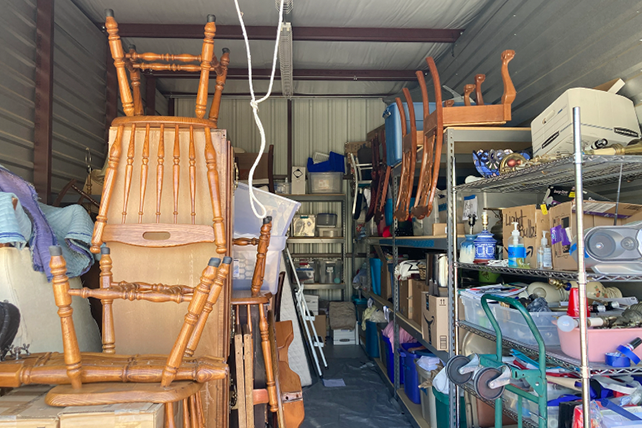RALEIGH, N.C. (RNS) — The 12×30-foot storage unit in a Raleigh, North Carolina, suburb is crammed full of chairs, tables, mattresses, lamps, pots and pans.
Most of its contents will soon be hauled off to two apartments that Welcome House Raleigh is furnishing for three newly arrived refugees. It’s a job the ministry, which is a project of the Cooperative Baptist Fellowship of North Carolina, has handled countless times on behalf of newly arrived refugees from such places as Afghanistan, the Democratic Republic of the Congo, Syria and Venezuela.
But these two apartments are going to three Afrikaners — whose status as refugees is, according to many faith-based groups and others, highly controversial.
Last week, Marc Wyatt, director of Welcome House Raleigh, received a call from the North Carolina field office of the U.S. Committee for Refugees and Immigrants asking if he could help furnish the apartments for the refugees, among the 59 Afrikaners who arrived in the U.S. last week from South Africa, he told RNS. It was a common request for the ministry that partners with refugee resettlement agencies to provide temporary housing and furniture for people in need.
And at the same time, the request was extremely challenging. After thinking about it, consulting with the Welcome House network director and asking for feedback from ministry volunteers, Wyatt said yes.
“Our position is that however morally and ethically charged it is, our mandate is to help welcome and love people,” said Wyatt, a retired Cooperative Baptist Fellowship missionary who now works for CBF North Carolina. “Our holy book says God loves people. We don’t get to discriminate.”
He recognized that Afrikaners are part of a white ethnic minority that created and led South Africa’s brutal segregationist policies known as apartheid for nearly 50 years. That policy, which included denying the country’s Black majority rights to voting, housing, education and land, ended in 1994, when the country elected Nelson Mandela in its first free presidential election.
Like Wyatt and Welcome House, many faith-based groups are now considering whether to help the government resettle Afrikaners after the Trump administration shut down refugee resettlement for all others.
Last week, the Episcopal Church chose to end its refugee resettlement partnership with the U.S. government rather than resettle Afrikaners. Presiding Bishop Sean Rowe said his church’s commitment to racial justice and reconciliation, and its long relationship with the late Anglican Archbishop Desmond Tutu made it impossible for the church to work with the government on resettling Afrikaners.
In January, in one of his first executive orders, President Donald Trump shuttered the decades-old refugee program, which brings people to the U.S. who are displaced by war, natural disasters or persecution. The decision left thousands of refugees, many living in camps for years and having undergone a rigorous vetting process, stranded.
But then Trump directed the government to fast-track the group of Afrikaners for resettlement, saying these white farmers in South Africa are being killed in a genocide, a baseless claim. The order left many refugee advocates who have worked for years to resettle vulnerable people enraged.
“Refugees sit in camps for 10, 20 years, but if you’re a white South African Afrikaner, then suddenly you can make it through in three months?” asked the Rev. Randy Carter, director of the Welcome Network and a pastor of a CBF church. “There’s a lot of words I’d like to attach to that, but I don’t want any of those printed.”

